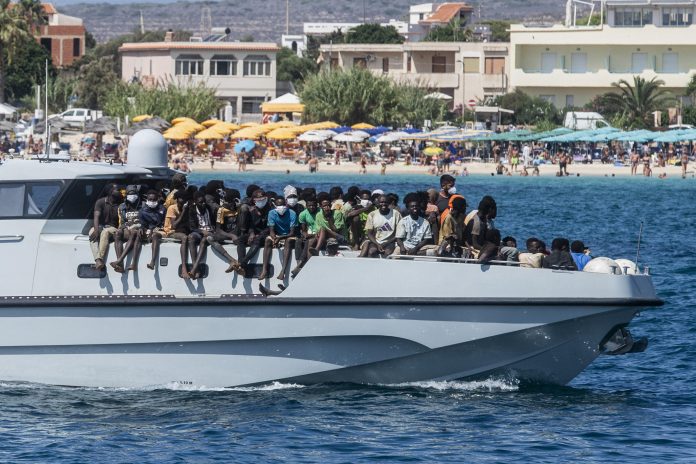European Union leaders have taken decisive steps to address the ongoing issue of illegal migration, agreeing to use all available tools—ranging from trade to visa policies—to expedite the return of migrants who entered the bloc illegally. The agreement, reached during Thursday’s European Council meeting, comes as irregular migration continues to be a highly sensitive and divisive topic across the 27 EU member states. Despite a decline in migrant numbers from the highs of the 2015 crisis, the issue remains politically charged and threatens the stability of the EU’s Schengen passport-free travel area.

The rise in illegal border crossings, exacerbated by leaky external borders, has contributed to the growing influence of far-right parties across Europe and has begun affecting election results. “The European Council calls for determined action at all levels to facilitate, increase, and speed up returns from the European Union using all relevant EU policy instruments and tools,” read the leaders’ conclusions. These include diplomatic channels, development aid, trade agreements, and visa policies, all of which will be leveraged to hasten the deportation process.
Last year, 484,000 non-EU citizens were ordered to leave the EU, but only 20% of them were successfully returned to their home countries. European Commission President Ursula von der Leyen acknowledged the slow pace of returns and vowed that the Commission was working to improve this number. She also revealed that the Commission would soon propose new legislation aimed at streamlining and accelerating deportations.

A major point of contention during the meeting was the issue of Poland’s controversial plan to temporarily suspend asylum applications for migrants pushed across its eastern border by Belarus and Russia. Many non-governmental organizations argue that this decision violates the EU’s Charter of Fundamental Rights. However, von der Leyen defended the move, saying it was a legal, temporary response to what she termed a “hybrid attack” from Minsk and Moscow.
The EU leaders expressed their solidarity with Poland, stating that Russia and Belarus should not be allowed to exploit the EU’s values, including the right to asylum. “Exceptional situations require appropriate measures,” they added. Poland’s approach was also supported by Finland, which had faced similar challenges with migrants pushed through its border with Russia and had suspended asylum applications in July.
In a bid to improve return rates, the EU is also considering the establishment of “return hubs” outside the bloc, where migrants whose asylum claims have been rejected could wait for deportation to their home countries. European leaders discussed how these hubs could be organized, with questions remaining about which third countries would be deemed safe for migrants to return to, how long they could be kept in these hubs, and what to do if deportation is not possible.

Italy has already set up a return hub in Albania, while the Dutch government is considering sending rejected African asylum seekers to Uganda. However, not all leaders were convinced by the idea. German Chancellor Olaf Scholz expressed skepticism, pointing out that for a large country like Germany, such hubs would only be able to handle a small fraction of asylum requests. He argued that fast-tracking returns through legislation would be a more effective solution.
Scholz, along with other EU leaders, also emphasized the need for migration as a positive force for Europe, particularly in light of the bloc’s aging population and the strain on pay-as-you-go pension systems. Spanish Prime Minister Pedro Sanchez highlighted that migration is crucial for the prosperity of European economies, pointing to its role in supporting welfare systems and propping up birth rates, which are falling across many EU countries.
“Do we want a prosperous and therefore open Europe, or do we want a poor and therefore closed Europe?” Sanchez asked during the discussions. His statement underscored the need for a balanced approach to migration—one that considers the long-term economic benefits and the challenges of an aging population, rather than focusing solely on short-term political gains or election cycles.

In conclusion, EU leaders are facing a complex challenge in balancing the need for secure borders and effective migration management while also addressing the demographic and economic realities of an aging continent. The debate over how to manage illegal migration will continue to shape EU policy in the coming months, with member states grappling with both the humanitarian and political implications of the crisis.




